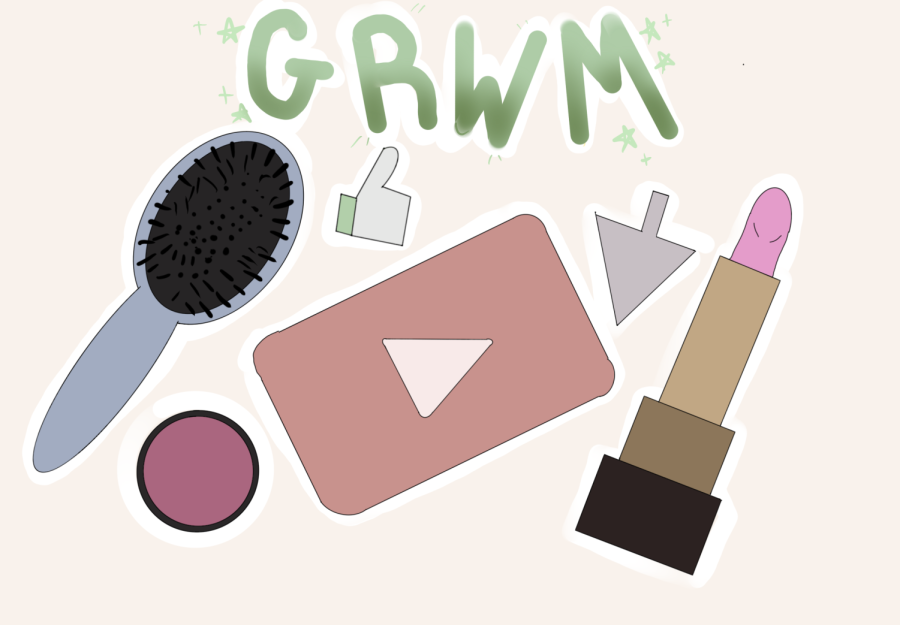Lifestyle vlogs influence SCHS students’ routines
Productivity and lifestyle vlogs have grown popular on social media platforms to influence the daily choices of many audiences.
While laying down on their bed on a Sunday morning, a fatigued teenager opens their laptop to watch a new YouTube vlog video in hopes of becoming motivated to start their own homework. As the video finishes, the teenager gets up from their bed, feeling more productive.
Many platforms such as YouTube and TikTok provide video content in which influencers share their lifestyle choices, such as vlogging content and suggestive tutorials. SCHS students reflect on their viewpoint of this digital content and the impact it can have on their routine and identities.
After watching many of the YouTube channel Vogue’s tutorials, junior Ashlyne Wan finds the channel’s influencers to be helpful as they recommend advice for her personal routine.
“I’ve always been a girly girl, and I think it’s just really interesting to see the way people get ready with themselves,” Wan said.
“They have tips and tricks on what they do, and I’ll try it out. Sometimes they also recommend products, and I think that’s helpful.”
Similarly, freshman Avy Balanza shared that the encouraging tone from influencers can be friendly and reassuring.
“Most people would describe it as talking to a friend in a way,” Balanza said.
Balanza believes watching others narrate a daily routine often motivates them to complete their own daily tasks.
“When I watch people do that, it makes me feel like, ‘Oh, I should go do that. I should get up and wash my face,’” Balanza said.
Despite the advantages of the content, Wan feels that influencers’ perspectives can be intimidating and cause insecurity among teenage audiences watching from home.
“Usually, those people (influencers) have nice skin and expensive products, and it will make you feel bad about yourself,” Wan said.
Like Wan, freshman Sophia Shing believes relating to another’s schedule and viewing influencers as role models ultimately leads to self judgment.
“Most people look up to the vloggers they watch, and that can lead to self-criticism in areas like body image, social status, etc., which isn’t something you want to pay attention to,” Shing said.
Despite the possibility of harmful outcomes, Shing emphasized the advantage of connecting with influencers online and highlighted her curiosity of the online industry’s content.
“I can somewhat relate to the vlogger’s age and educational status, but I can’t relate to their lifestyle as much,” Shing said. “I don’t think it would be very fascinating to watch videos of people who have the same lifestyle as you.”


